Interventions for body weight reduction in obese patients during short consultations: an open-label randomized controlled trial in the Japanese primary care setting
- PMID: 26015773
- PMCID: PMC4443656
- DOI: 10.1186/s12930-015-0022-7
Interventions for body weight reduction in obese patients during short consultations: an open-label randomized controlled trial in the Japanese primary care setting
Abstract
Background: Family physicians should maintain regular contact with obese patients to ensure they effectively reduce their body weight. However, family physicians in Japan have on average only 6 (min) per consultation, and conventional interventions for body weight reduction require a longer consultation or additional manpower. A brief intervention within the limited consultation time available is therefore needed. Here we investigated the effectiveness of a brief weight reduction intervention for obese patients and the related factors for reducing body weight during routine consultations in the primary care setting.
Method: We conducted an open-label randomized controlled trial at a family medicine clinic in Fukushima, Japan from January 2010 to June 2011. Patients aged 30 to 69 years with body mass index ≥25 who were diagnosed with hypertension, dyslipidemia, and/or type 2 diabetes mellitus were randomly assigned to the intervention or control group. At every consultation, body weight in the intervention group was measured by a family physician who provided weight reduction advice in addition to usual care. The primary outcome was body weight change at 1-year follow up. Analysis was done by intention to treat.
Result: We randomly assigned 29 participants to the intervention group and 21 to the control group. Forty participants (80 %) remained in the trial until the 1-year follow up. At follow up, the median body weight change from baseline was not significantly different between the groups (p = 0.68), at -0.8 (interquartile range [IQR] -2.5 to 1.0) kg in the intervention group and 0.2 (IQR -2.4 to 0.8) kg in the control group.
Conclusion: We devised an intervention method for physicians to measure body weight and advise on weight reduction during routine consultations. In our setting, this method did not extend the consultation time, but also had no significant additional effects on body weight reduction in moderately obese patients.
Trial registration: This trial is registered with the UMIN Clinical Trial Registry (UMIN000002967).
Keywords: Brief intervention; Obesity; Outpatient care; Primary care; Short consultation; Weight reduction.
Figures
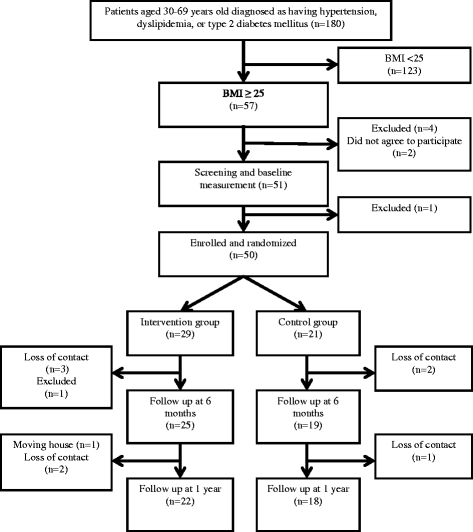
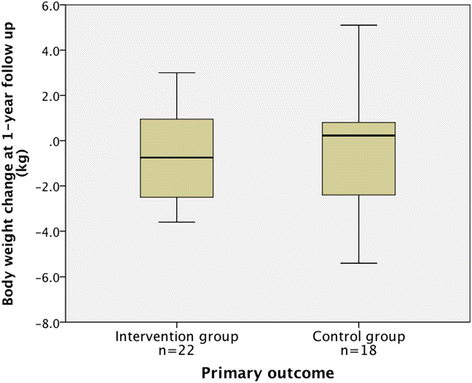
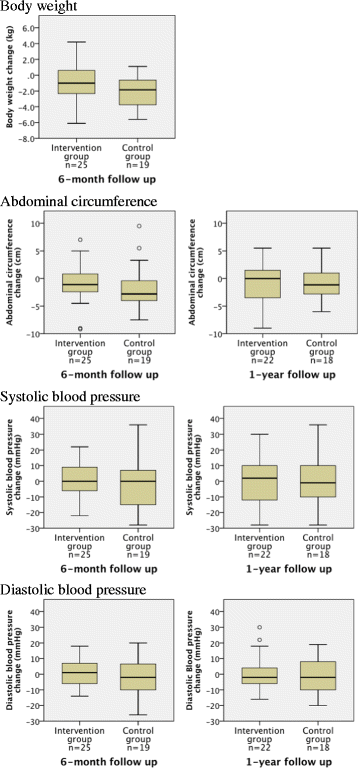
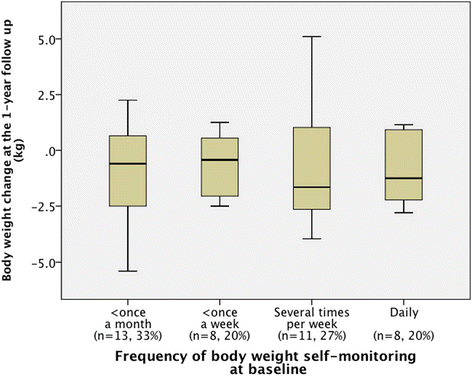
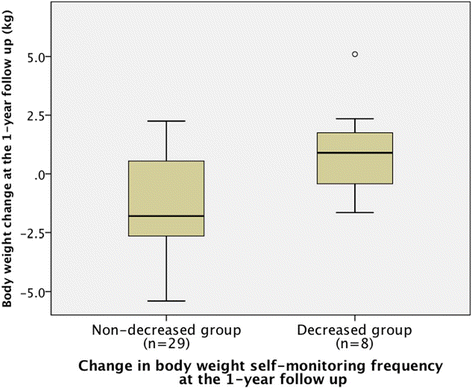
References
-
- Ministry of Health, Labour and Welfare, Japan: 2011 Patient survey. http://www.mhlw.go.jp/english/database/db-hss/sps_2011.html. Accessed 13 Nov 2013
-
- World Health Organization . Obesity and overweight WHO fact sheet No311. 2013.
-
- Ministry of Health, Labour and Welfare, Japan: 2011 National Health and Nutrition Survey. http://www.mhlw.go.jp/bunya/kenkou/kenkou_eiyou_chousa.html. Accessed 11 Nov 2013. [in Japanese]
LinkOut - more resources
Full Text Sources
Other Literature Sources

